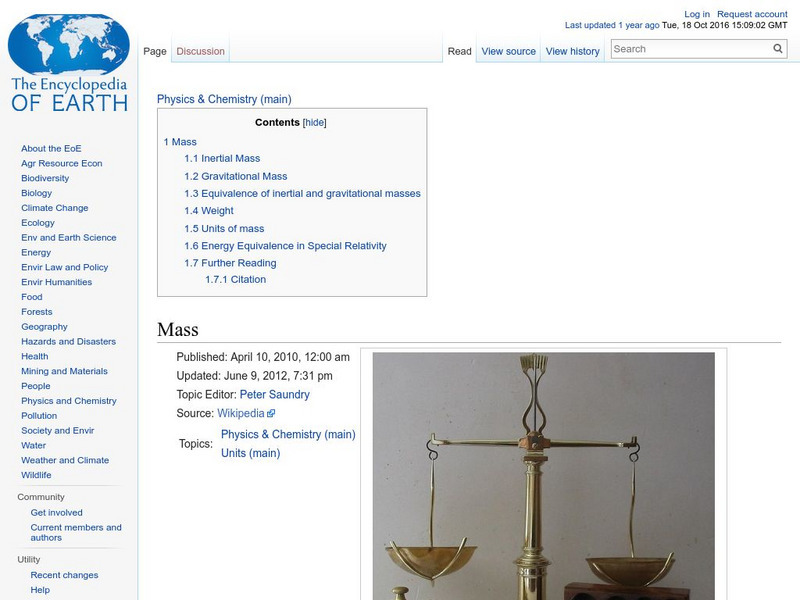Curated OER
Flying With The Wright Stuff
Young scholars explore the history of flight, specifically the Wright brothers. Pupils create paper airplanes. They discuss considerations in building an aircraft such as drag, thrust, and weight. Classmates compare the Wright...
Curated OER
What's In the Dirt?
Third graders watch a demonstration and write in their journals their predictions about how time might affect the moisture in the two paper towels. Using a Berlese funnel, they record their observations when it comes the amount of...
Curated OER
Predicting the Past
Students study how archaeologists record the past. They discuss archaeology and artifacts. They view a list of artifacts discovered by Marquette at the Illinois Village and answer questions regarding them. They complete a test about...
Curated OER
Navvies/ Canals
Students investigate the concept of water permeability in order to help find the best material to line a canal. The goal is to find a material that does not allow water to escape. They also conduct an experiment and record the observations.
Curated OER
Insulation and Buoyancy
Students predict whether their hands be warmer in ice water with or without a blubber mitten. They construct a blubber mitten using plastic, Crisco and compare their results with a control group. They observe how this affects buoyancy too.
Curated OER
Investigation 6 - Collecting Weather Data
Fourth graders collect data for two weeks. They start seeing patterns and make predictions. They can predict what the weather be like the next day and for the next few days. They see if their predictions were correct from the previous day.
Curated OER
Investigation 4 - Collision Zone
Third graders study how forces of push and pull can change speed or direction.
Curated OER
Tune Up Your Ears!
Students discuss meaning of pitch, listen for different sounds in classroom, hallway, and outdoors, and listen to sounds played on piano and on computer to determine high or low pitch.
Curated OER
How Does Climate Affect Your Environment?
Students access the Global Sun Temperature Project website and research the relationship between the location and climate of a participating school to its building structure. They consider how climate affects the type of structures...
Curated OER
Robots from Junk
Students create balloon and rubber band models of robotic rovers to investigate the concepts of mass, torque, and friction. Through research and planning, students construct a rover test-bed that simulates the Martian environment.
Curated OER
Plants
Students plant bean seeds and draw pictures of the plants as they grow. They create their own garden, plant the seeds, and keep a journal of their growth.
Curated OER
Mars Calendar Project
Students design a calendar that displays time on Mars. They explore the differences between time on Earth and time on Mars while making the calendar.
Curated OER
What It Is, What It Isn't
Third graders classify and sort different types of beans to be introduced to the classification system in science. As a class, they identify the characteristics of living and non-living organisms and make a chart in their journal to ...
Curated OER
Machines: Useful But Dangerous
First graders study, observe, and use a simple machine. They study necessary safety and review posted safety rules related to using a machine and identify strategies for reporting any accidents or injuries.
Curated OER
Simple Machines
Fifth graders study how simple machines can help us alter forces and discuss the term mechanical advantage. They then identify dysfunctional simple machines and discuss in groups how the dysfunctions will decrease the effectiveness of each.
Curated OER
Green Leaves
Third graders, after having conducted one experiment three times, record their observations results in a chart. They predict what hidden colors they believe that a leaf holds. Students record their predictions in their science note books...
Curated OER
Weather Mobile
Learners color the lightning part of the thunder cloud and then cut out the pattern. They then cut out the cloud pattern and put cotton onto it with glue. They then fold a piece of paper several times to create a snowflake to which they...
Curated OER
Bridges
Ninth graders use model-building to help comprehend the forces and phenomena at work in the world around them. They describe gravity as a universal force that pulls everything toward the center of the earth. Students distinguish between...
Curated OER
Inventions 2: The Impact
Students research inventors and inventions and their impacts. In this invention lesson, students research inventions and their affects in good and bad ways.
Curated OER
Science in Your Shopping Cart
Students research the use of science in food production in the United States. In this science and food lesson, students visit a specific website to learn about the science used in various food products for United States consumption.
Encyclopedia of Earth
Encyclopedia of Earth: Physics & Chemistry: Mass
Defines inertial and gravitational mass, their scientific history, formulas used in their calculation, the definition of weight, units used for mass, and mass as perceived in the theory of special relativity.
University of St. Andrews (UK)
University of St. Andrews: Daniel Bernoulli
Excellent in-depth biography of Daniel Bernoulli's life and scientific accomplishments. Information on Bernoulli's family, education, and major works is included. Also includes links to information on other scientists and mathematicians.
Council for Economic Education
Econ Ed Link: The Economics of Income: Which 'Wood' You Choose?
A key turning point in a nation's economic development is when it starts to use its resources for long term versus short term purposes. A natural resource example is trees: should people use wood for cooking food or building homes?...
























